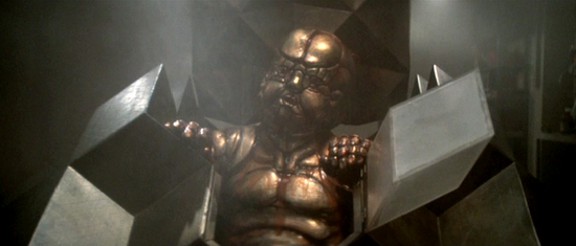As streaming services increasingly proliferate online, it can be difficult to determine which sites are worth your money. One such upstart definitely worth a cinephile’s time (and money) is the Warner Archive’s Instant service, supplementing Warner’s made-to-order DVD program for their extensive, esoteric back-catalog with a cheaper, easily accessible online platform. Every week, we at Movie Mezzanine will spotlight some of the best films the archive has to offer, from all-time classics to obscure gems fostered during the studio’s golden age.
Cat People (dir. Jacques Tourneur, 1942)
The oft-cited notion that the days of the Production Code and other forms of censorship ultimately helped movies is one that should be answered with only the most open contempt, yet it’s true that limitations of a sort are often a prerequisite of great art. The restrictions of Cat People, like all of Val Lewton’s classic productions, are self-imposed, with its monster kept largely off-screen and its carnage almost elegantly played out in the mind. In Jacques Tourneur, Lewton found his ideal shooter, a director who made absence his trademark, be it his icy and barren frames or the sense that all the characters in his films—regardless of their writers—are missing something. In Cat People, it’s the absence of physical affection, indeed the fear of it, that ultimately creates danger. A scene in which a potential victim is trapped in a pool by the shadow of an unseen creature is one of the genre’s most enduringly gripping sequences. Very possibly the greatest American horror film ever made, Cat People is a must-see for the uninitiated, and its deceptively spare execution reveals more nuance with each revisit. — Jake Cole
Demon Seed (dir. Donald Cammell, 1977)

Donald Cammell’s Demon Seed barely bypasses its routine silliness to become little more than an effective sci-fi-thriller/body-horror entry. Based on a novel of the same name by Dean R. Koontz, the film functions as a close relative to the later works of David Cronenberg, but Demon Seed suggests a slight removal from that filmmaker’s gratuitousness, as the face of its horror is inhabited by an organic super-computer called Proteus, certainly not far removed from 2001’s HAL 9000. Both cold and calculated, Demon Seed details the negative implications surrounding man and his everlasting ambition. It’s always preposterous, but far from boring. — Ty Landis




















